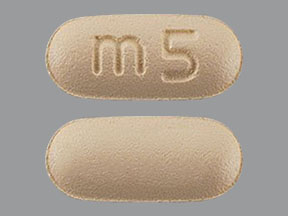
Namenda Coupons & Savings Card – Discount Prices from $29.74
Brand for: Memantine
My prescription
Edit
5MG, Memantine (180 Tablets)
Select pharmacy

CVS
$33.72
COUPON PRICE
Albertsons
$29.74
COUPON PRICE
Walgreens
$30.35
COUPON PRICE
Walmart
$35.35
COUPON PRICENamenda savings card
Show this card to your pharmacist
Albertsons
$29.74
BIN
ID
PCN
GRP
019876
LH95F30767
CHIPPO
LHX
Powered by
Related NMDA receptor antagonists prescriptions
More prescriptions for dementia
Related NMDA receptor antagonists prescriptions
More prescriptions for dementia
Namenda (Memantine) dosage forms
Dosage Quantity Price from Per unit 5MG 180 Tablets $29.74 $0.17 5MG 1 Tablet $2.58 $2.58 5MG 30 Tablets $4.97 $0.17 5MG 50 Tablets $6.62 $0.13 5MG 60 Tablets $7.45 $0.12 5MG 90 Tablets $16.42 $0.18 5MG 100 Tablets $17.25 $0.17 5MG 120 Tablets $18.90 $0.16 5MG 500 Tablets $46.90 $0.09 5MG 1000 Tablets $67.50 $0.07
| Dosage | Quantity | Price from | Per unit |
|---|---|---|---|
| 5MG | 180 Tablets | $29.74 | $0.17 |
| 5MG | 1 Tablet | $2.58 | $2.58 |
| 5MG | 30 Tablets | $4.97 | $0.17 |
| 5MG | 50 Tablets | $6.62 | $0.13 |
| 5MG | 60 Tablets | $7.45 | $0.12 |
| 5MG | 90 Tablets | $16.42 | $0.18 |
| 5MG | 100 Tablets | $17.25 | $0.17 |
| 5MG | 120 Tablets | $18.90 | $0.16 |
| 5MG | 500 Tablets | $46.90 | $0.09 |
| 5MG | 1000 Tablets | $67.50 | $0.07 |
| 10MG | 1 Tablet | $2.58 | $2.58 |
| 10MG | 30 Tablets | $4.77 | $0.16 |
| 10MG | 50 Tablets | $6.28 | $0.13 |
| 10MG | 60 Tablets | $7.03 | $0.12 |
| 10MG | 90 Tablets | $15.80 | $0.18 |
| 10MG | 100 Tablets | $16.55 | $0.17 |
| 10MG | 180 Tablets | $26.16 | $0.14 |
| 10MG | 500 Tablets | $46.01 | $0.09 |
| 10MG | 1000 Tablets | $67.50 | $0.07 |
| 10MG | 3000 Tablets | $149.90 | $0.05 |
What does the drug Namenda do?
Namenda, also known by its generic name memantine, is a medication used to treat moderate to severe Alzheimer's disease. It works by regulating the activity of glutamate, a neurotransmitter in the brain, which may help improve memory, awareness, and the ability to perform daily functions.
What is the difference between Aricept and Namenda?
Aricept (donepezil) and Namenda (memantine) are both medications used to treat symptoms of Alzheimer's disease, but they work in different ways. Aricept is a cholinesterase inhibitor, which helps increase the levels of acetylcholine in the brain, potentially improving memory and cognition. Namenda, on the other hand, is an NMDA receptor antagonist, which helps regulate the activity of glutamate, a neurotransmitter involved in learning and memory. They can be used individually or in combination, depending on the patient's specific needs and the progression of the disease.
What is the most common side effect of memantine?
The most common side effect of memantine is dizziness.
Is memantine still on the market?
Yes, memantine is still on the market. It is commonly used for the treatment of moderate to severe Alzheimer's disease.
What does Namenda do to the brain?
Namenda, also known as memantine, works by regulating the activity of glutamate, a neurotransmitter in the brain. It is used to treat symptoms of Alzheimer's disease by helping to improve memory, awareness, and the ability to perform daily functions. Namenda achieves this by blocking NMDA receptors, which can become overactive in Alzheimer's, potentially reducing symptoms associated with the disease.
